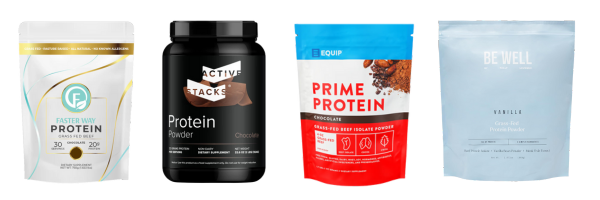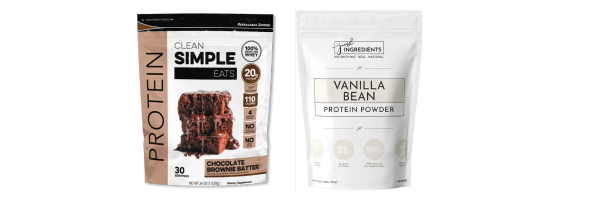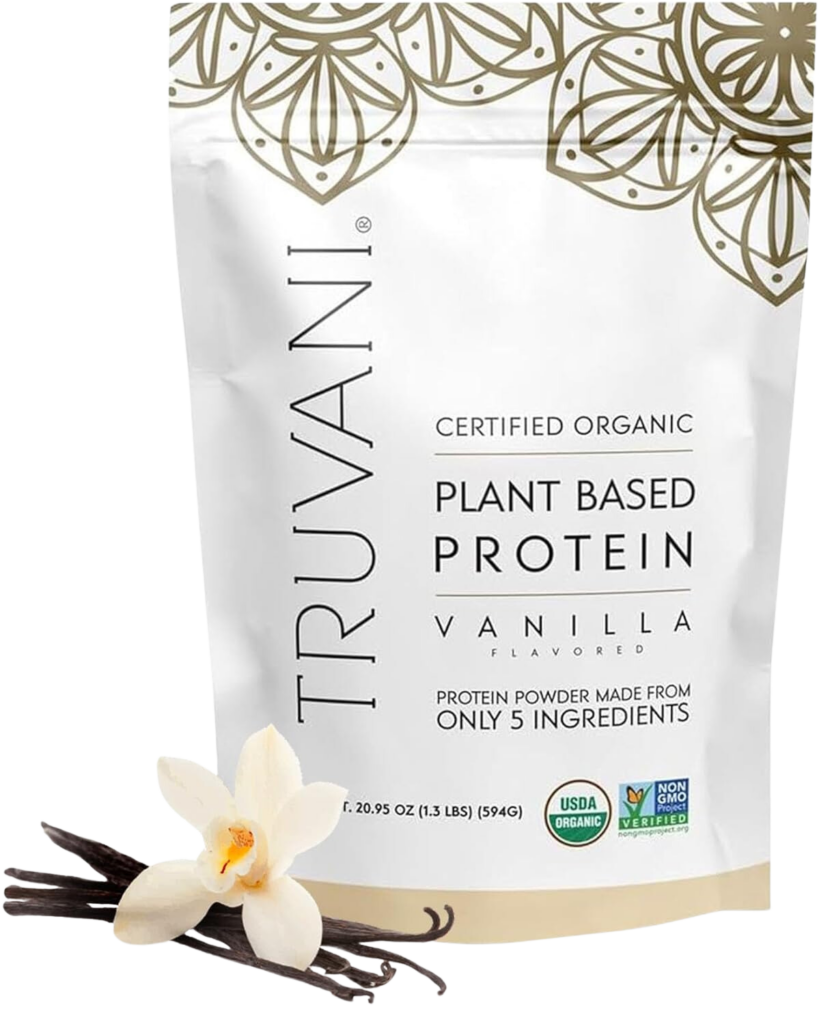Protein is a crucial macronutrient for anyone looking to maintain a healthy lifestyle, but for women in our 30s and beyond, it becomes even more essential. Whether you’re aiming to build muscle, lose weight, or simply ensure you’re getting enough nutrition to support a busy lifestyle, protein powder can be a convenient and effective solution. But with so many options on the market, how do you choose the right one? Today I’m breaking down the different types of protein powders, highlighting their pros and cons to help you make an informed decision.
1. Grass Fed or HydroBEEF™ Protein
Pros:
- Nutrient-Rich: Grass-fed beef protein powder tends to be higher in essential nutrients such as omega-3 fatty acids, conjugated linoleic acid (CLA), vitamins A and E, and antioxidants.
- Quality Protein Source: It provides a complete amino acid profile, making it a high-quality protein source that supports muscle growth, repair, and overall body maintenance.
- Digestibility: Often easier to digest for some individuals compared to other protein sources like whey or soy, especially those with lactose intolerance or dairy allergies.
- Fewer Additives: Less likely to contain artificial hormones, antibiotics, or pesticides, which can be found in conventionally raised beef.
- Reduced Allergens: Typically free from common allergens such as gluten, soy, and dairy, making it suitable for people with food sensitivities.
- Natural Taste: Often has a more natural taste and less processing compared to some other protein powders, which can appeal to those looking for a more ‘whole food’ approach.
- Safe for Children: This type of protein powder is safe for all ages since it uses a protein source that your body recognizes and it’s easily digestible.
Cons:
- Cost: Generally more expensive than conventional protein powders due to the higher cost of raising grass-fed cattle. But, keep in mind, you get what you pay for!
- Not a con, but keep in mind that this type of protein source is NOT vegan or vegetarian since it is derived from beef.
I have 4 favorite beef protein powders that I recommend:
FASTer Way grass-fed protein powder
Active Stacks beef protein powder (use code LOREN for 10% off)
Equip grass-fed protein powder (15% off applied at checkout)
Be Well by Kelly Leveque grass-fed beef protein powder

2. Casein Protein
Pros:
- Slow Absorption: Casein is digested slowly, providing a steady release of amino acids. This makes it ideal for sustained protein intake, such as before bed.
- Muscle Preservation: Helps prevent muscle breakdown over long periods without food.
- Satiety: Can keep you feeling full for longer, which may help with weight management.
Cons:
- Dairy Source: Like whey, it’s unsuitable for those with lactose intolerance or dairy allergies.
- Slow Digestion: Not ideal for immediate post-workout recovery.
- Texture: Can be thicker and more challenging to mix compared to whey protein.
3. Whey Protein
Pros:
- Complete Protein: Whey protein contains all nine essential amino acids, making it a complete protein source.
- Fast Absorption: It is quickly absorbed by the body, making it ideal for post-workout recovery.
- Muscle Growth: Rich in branched-chain amino acids (BCAAs), which are particularly beneficial for muscle repair and growth.
- Weight Management: Can aid in weight loss by promoting satiety and supporting lean muscle mass.
Cons:
- Contains Dairy: Not suitable for those with lactose intolerance or dairy allergies.
- Digestive Issues: Some people may experience bloating or digestive discomfort.
- Taste and Texture: Some find the taste and texture of whey protein powders unappealing.
Here are my 2 favorite options for whey protein powders:
Clean Simple Eats whey protein powder. Use code LOREN at checkout.
JUST INGREDIENTS grass-fed whey protein powder

4. Plant-Based Protein
Pros:
- Dairy-Free: Suitable for vegans and those with lactose intolerance.
- Variety: Options include pea, rice, hemp, soy, and mixed plant proteins.
- Nutrient-Rich: Often contains additional vitamins, minerals, and fiber from plant sources.
- Sustainability: More environmentally friendly than animal-based proteins.
Cons:
- Incomplete Proteins: Not all plant proteins are complete proteins, though blends can offer a complete amino acid profile.
- Digestibility: Some plant proteins may be harder to digest.
- Taste and Texture: Can vary widely, with some finding them less palatable.
My favorite plant-based protein powder is Truvani Organic vegan protein powder. Click here to shop! They have tons of flavor options like vanilla, chocolate, chocolate peanut butter, matcha, lemon cookie, vanilla chai, banana cinnamon and more!

5. Egg White Protein
Pros:
- Complete Protein: Contains all essential amino acids.
- Dairy-Free: Suitable for those with dairy allergies or lactose intolerance.
- Low Fat and Carbs: A lean protein source with minimal fats and carbohydrates.
Cons:
- Allergies: Not suitable for those with egg allergies.
- Cost: Can be more expensive than other protein powders.
- Taste: The taste can be less appealing compared to other protein powders.
6. Collagen Protein
Does not count toward your daily protein goal but has many other benefits!
Pros:
- Joint and Skin Health: Supports joint, skin, and hair health due to its high collagen content.
- Digestibility: Generally easy to digest and less likely to cause bloating.
- Versatility: Can be mixed into both hot and cold liquids without altering taste significantly.
Cons:
- Incomplete Protein: Lacks some essential amino acids needed for muscle building.
- Cost: Can be more expensive than other protein options.
- Specific Benefits: Primarily supports skin and joint health rather than muscle growth.
- Does not count toward your daily protein macronutrient goal.
Click HERE to shop my favorite collagen peptides!
Choosing the right protein powder depends on your individual health needs, dietary restrictions, taste preferences, and fitness goals. If you’re looking for muscle growth, quick recovery & minimal digestive discomfort, a high quality grass fed beef protein powder will be your best bet. Plant-based proteins offer a great alternative for vegans & vegetarians and collagen can be extremely beneficial for hair, skin, nails, & joint health. Remember, the best protein powder is the one that fits seamlessly into your lifestyle and helps you achieve your health and fitness goals. Happy protein hunting!
While you’re on your protein hunt, be sure to snag my FREE guides:
Click here to download my Protein Snack Guide chock-full of my favorite high-protein snack ideas.
Click here to download my Protein Break-Fast Guide, complete with my 10 favorite meals to break my fast. Each meal has over 30 grams of protein!
Have more questions? Not sure where to start? I would love to give you personalized support through my 6-week health and fitness program! We combine education, macro tracking, intermittent fasting, and carb cycling to maximize fat loss and improve overall health. Click the link below to grab your spot in my next round!
https://lorenmattingly.com/the-faster-way
Feel free to share your favorite protein powder and how it has helped you on your fitness journey in the comments below!

I would love a further explanation of why the collagen protein is not counted towards your protein for the day?